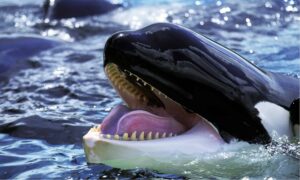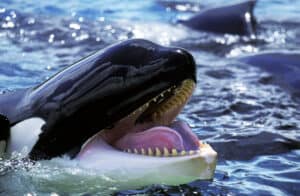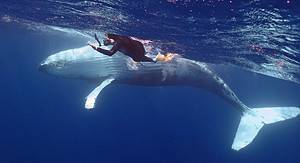Continue reading for our analysis...
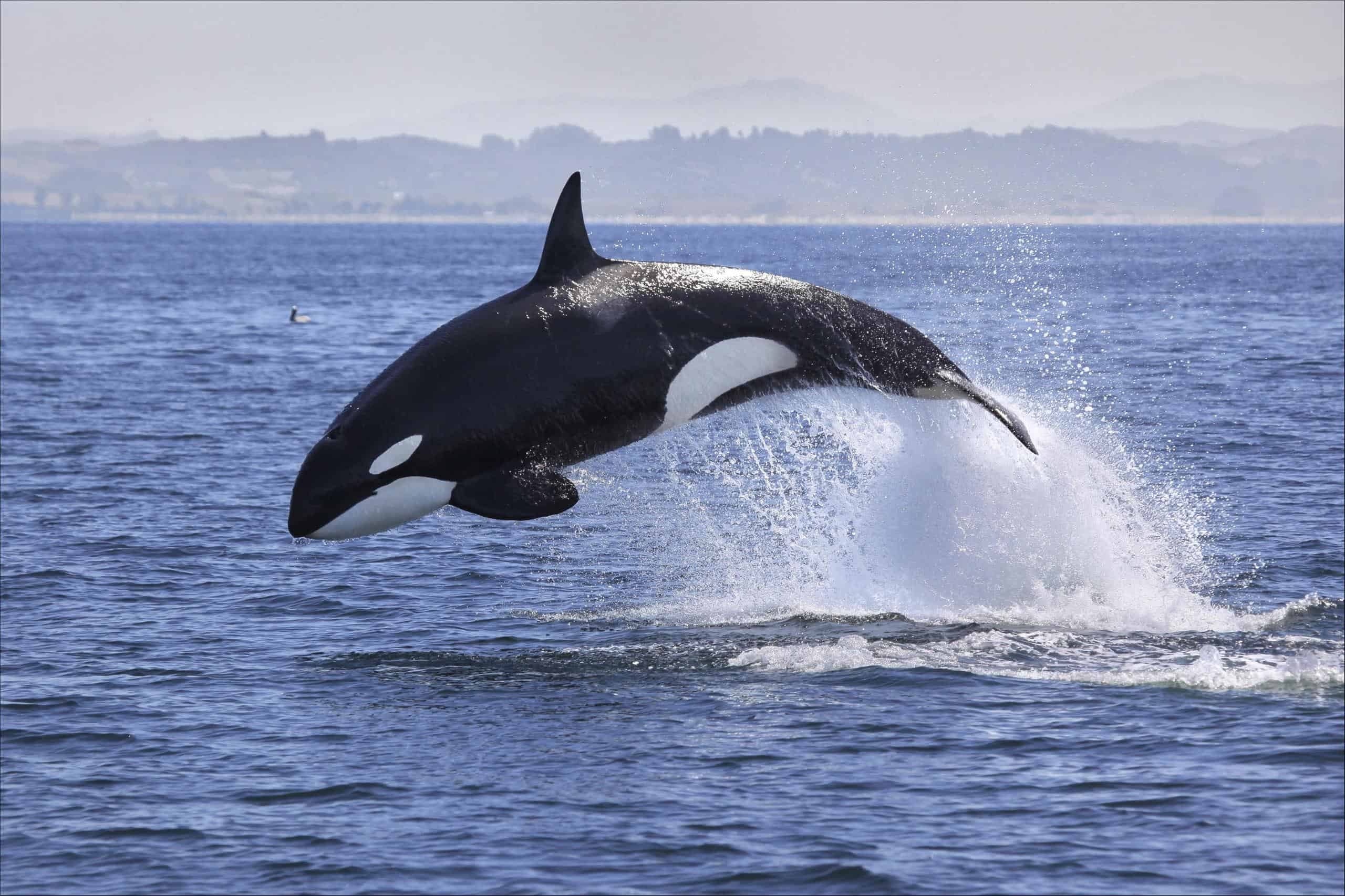
If you think you have seen it all, think again. A viral video shows a brave black lab outswimming a pod of killer whales and then barking at them from the shore like some victorious pup!
The video was captured by a diver who was exploring a small bay when he encountered the orcas. He quickly got out of the water, but the dog on the other side of the bay had other plans. Jumping into the water, the determined (and a little bit crazy) dog started chasing the fins of the orcas, who seemed more curious than aggressive.
Once the lab got a little closer, however, he realized he was no match for the huge marine mammals and quickly turned back to the shore. He then proceeded to bark at them as if to warn them not to come closer, but it was more of a show than anything the massive sea creatures needed to be concerned with. The orcas lingered for a while, clearly curious about the strange animal barking at them, but eventually left the bay.
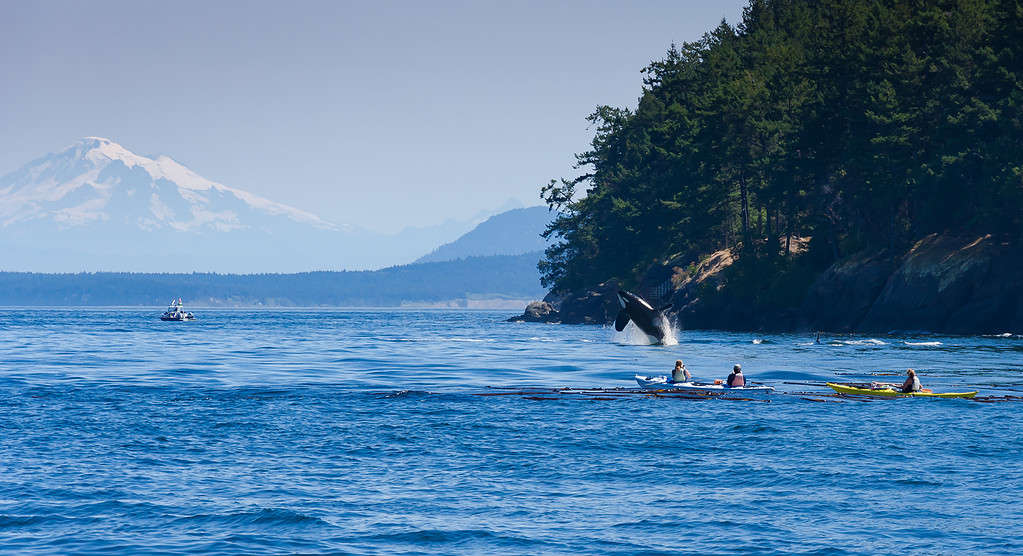
Killer whales aren’t worried about humans, and there are no recorded killer whale attacks on humans.
©iStock.com/Fokusiert
How Fast Can A Black Lab Swim?
As far as the dog goes, some people may think it was dumb, while others would consider it brave. Thankfully, we don’t have to wonder about what could have happened if the orcas had seen the dog as a potential meal! As fast as a dog can swim, it can’t really compare to the sheer speed and power of a killer whale. On average, dogs are able to swim between 1-3 mph in the water, while an orca can easily top 35 mph without trying too hard.
Is it Normal Behavior for Black Labs to Swim Fast?

Black labs are natural swimmers and are practically made for water adventures.
©Stephanie Denise Powers/Shutterstock.com
Definitely! Labradors are natural swimmers and they love taking a dip in lakes, streams, and pools. Their genetic makeup makes them well-suited for water activities, with webbed toes for efficient propulsion and short, insulating fur to keep them warm without hindering their movement.
While some Labs may need a bit of encouragement to enter the water, others may happily jump in on their own accord.
Labradors thoroughly enjoy swimming, even without a retrieving game. Whether it’s at the beach, a lake, a pond, or a backyard pool, they love paddling around.
Orcas Are Very Picky Eaters
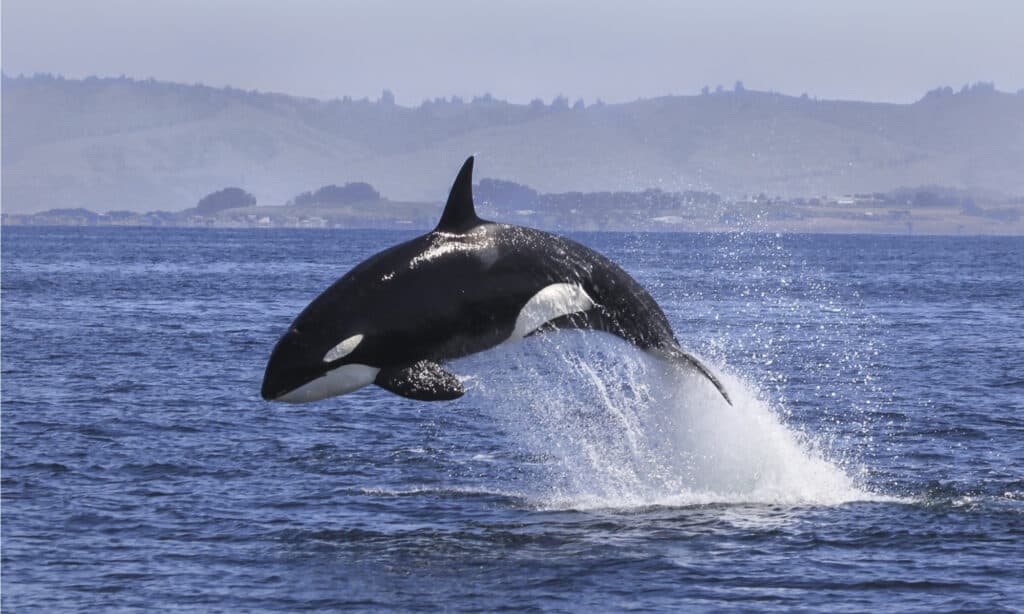
Orcas are picky eaters, and their food choices align with the choices of their pod.
©Tory Kallman/Shutterstock.com
It was clear that the killer whales weren’t particularly interested in the black lab as a food source; otherwise, things in the video would have ended much differently!
Contrary to their reputation as ruthless predators, orcas are actually picky eaters who only eat what they are taught to eat by their mothers. Different pods of orcas have different food cultures and hunting behaviors that dictate their prey choices. Some orcas prefer fish, while others go for marine mammals or squid. This is part of the reason why they don’t eat humans, as they are not part of their learned diet.
Lucky for the dog!
How Large Are Orcas?

The orca’s large dorsal fin helps it glide through water dexterously.
©slowmotiongli/Shutterstock.com
In the video, the black lab doesn’t seem intimidated by the size of the orca even though the orca is considerably bigger than the canine. The average male orca can be anywhere from 20 to 26 feet long. Females are a bit smaller, with their average length stretching 18 to 22 feet. When it comes to weight, orcas are quite heavy. The average weight for a male orca is 12,000 or more pounds, while the female average weight ranges from 8,000 to 11,000 pounds. The dorsal fin of an orca can grow up to 6 feet tall!
Thank you for reading! Have some feedback for us? Contact the AZ Animals editorial team.




